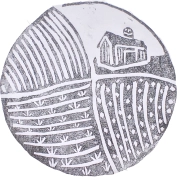 I’m putting together a panel for next summer’s ASLE conference. The idea is to turn the panel’s revised essays into an edited collection. Let me know if you are interested in the project but aren’t able to make the trip to UC-Davis for ASLE. Here’s the plan:
I’m putting together a panel for next summer’s ASLE conference. The idea is to turn the panel’s revised essays into an edited collection. Let me know if you are interested in the project but aren’t able to make the trip to UC-Davis for ASLE. Here’s the plan:
Just fifteen miles separate Aldo Leopold’s Shack from the farm where John Muir spent his boyhood. Twenty-five miles of Wisconsin and Fox River water (and one mucky canal) connects them. For so important a cultural landscape, this river route is surprisingly unexplored and unremarked upon. This panel aims to bring together scholars, writers, and thinkers to explore this stretch of river and write about it in a compelling way.
All panel participants will make the journey from Leopold’s Shack to Muir’s farm (hopefully by canoe, but perhaps by bike, on foot, or on skis instead) and will write about what they saw, experienced, or discovered. A dream panel would consist of some of the following: an archaeologist, a poet, a hydrologist, an ornithologist, former inhabitants and native peoples, a geographer, a limnologist, an entomologist, a geologist, an historian, Native American studies scholars, visual artists, and photographers. In gathering voices from across the arts, humanities, and sciences, the panel builds upon Scott Slovic and Nalini Nadkarni’s 2017 ASLE seminar “To Feel and To Know: The Art and Science of Environmental Writing” which brought together “thinkers who might not otherwise readily meet each other: ecocritics and environmental artists, academics and public officials, humanists and scientists.”
Approaches to the essays and their emphases will vary (the diversity of writing about a relatively narrowly defined place will be one of the panel’s chief appeals), but hopefully all the authors will “mov[e] through the landscape with wonder, but also with care” and “aspire to see with a scientific eye and write with literary effect” as Jason Cowley has described the best of the New Nature Writing. Collaborations are especially welcome between scientists who are less comfortable writing with literary effect and writers whose scientific eyesight is less sharp than they would hope. The panel organizers are willing to help coordinate these collaborations as well as travel arrangements.
Please send questions and proposals to Josh Mabie (mabiej@uww.edu).
